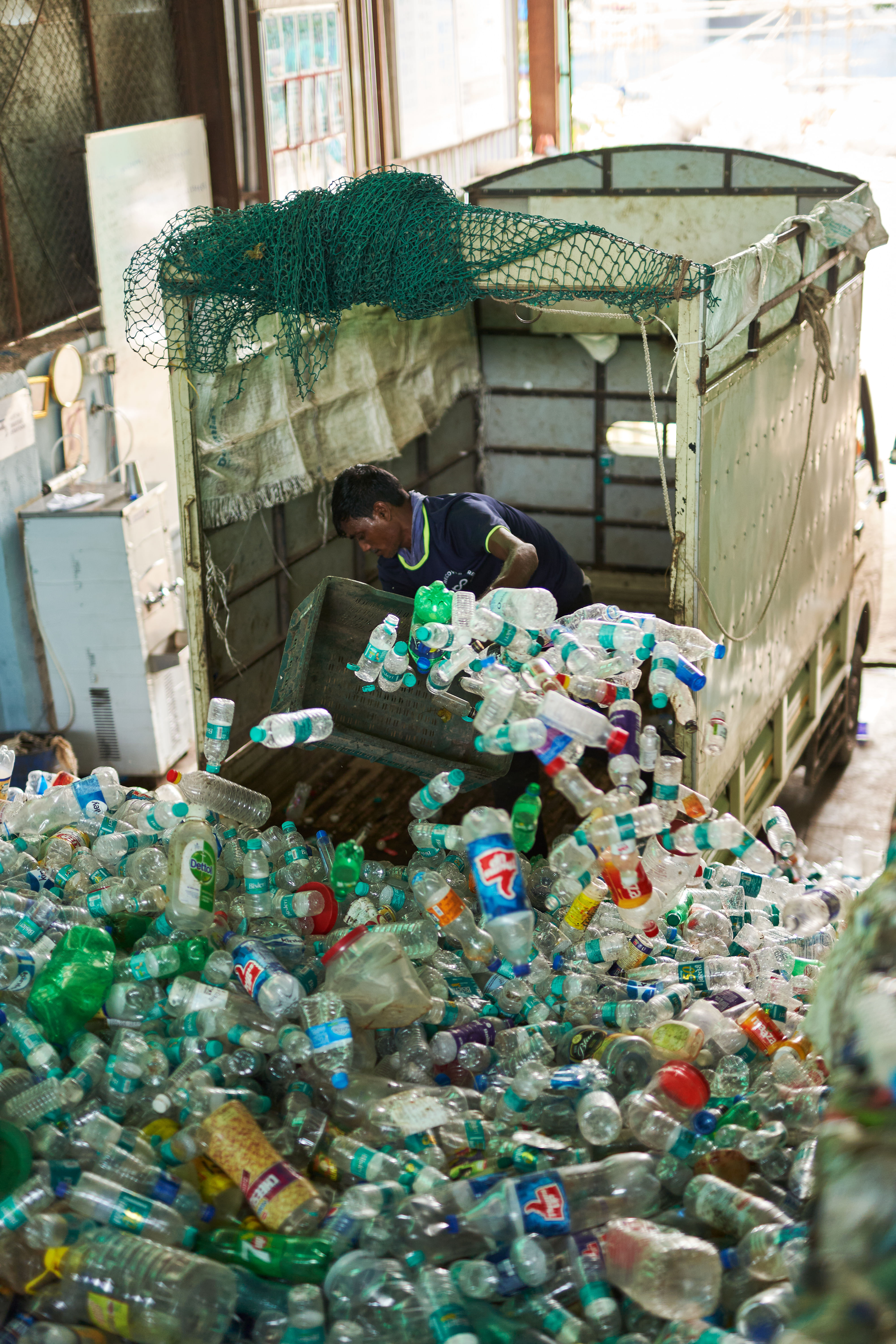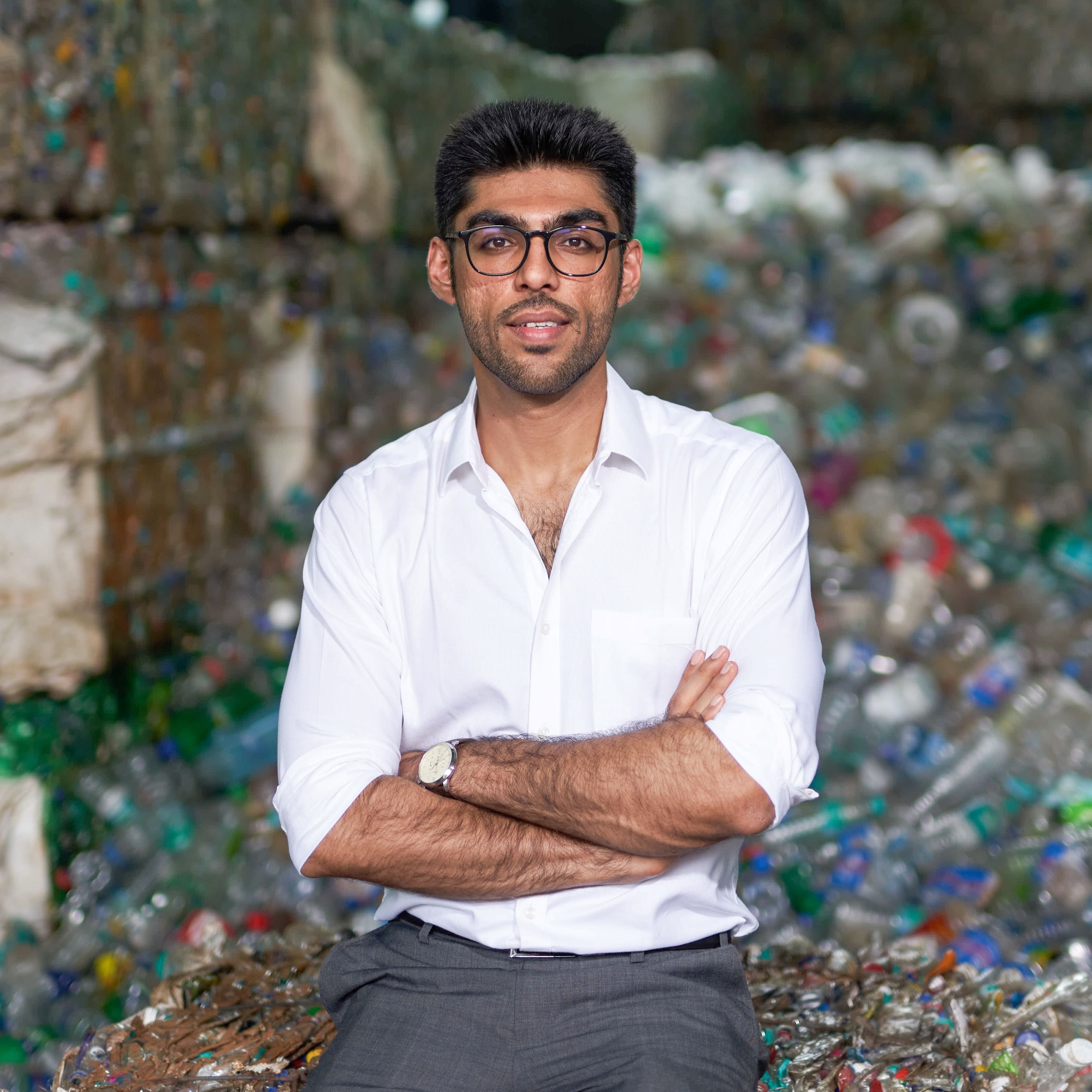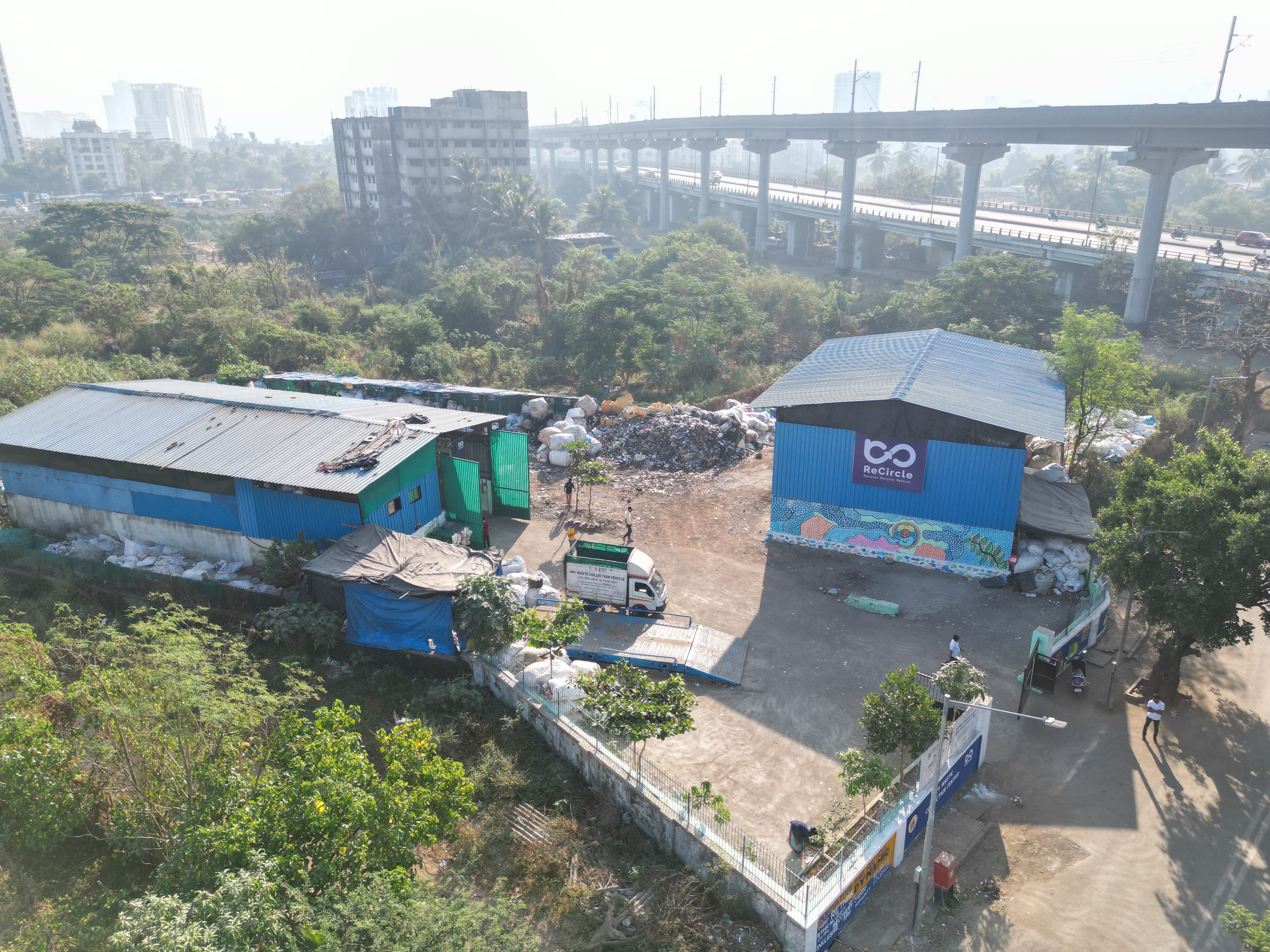ReCircle Surging faith in sustainability through plastics recycling
Rahul Nainani, co-founder and CEO, ReCircle, a company is certified under the Ocean Bound Plastic (OBP) Certification Program by Zero Plastic Oceans, discusses with Abhay Avadhani, the recycling aspects in the packaging industry, and how ReCircle has been paving the way for a sustainable future
18 Oct 2023 | By Abhay Avadhani
Abhay Avadhani (AA): Reuse and recycling are the two ways of minimising the plastics waste. What are your sustainability targets in this regard?
Rahul Nainani (RN): We empower consumers and brands to divert waste away from landfills and our oceans, back into the economy to be recycled, reused or repurposed. The recycling space is massive and untapped with stakeholders (collectors, processors, recyclers and businesses) disjointed and fragmented. We want to be at the forefront of formalising the waste sector and play an active role in the transition to a circular economy. With our technology-enabled waste supply chain platform, we are poised to efficiently and transparently handle waste recovery across India in a scalable and cost-effective way.
AA: There are standard practices of measuring the impact by checking the foot-print at each stage of use-reuse-recycling. What are some of the standards you adhere to?
RN: Over the last four months we have refined our vision and long term goals by on-boarding a professional agency for impact assessment. It conducted an impact assessment with 25% of our stakeholders across all categories. By using a log frame approach, the agency listed impact matrices to capture our financial, environmental and social impact. As the next step, a monitoring and evaluation system is being set up to capture and report our impact across vertices mentioned above and aligned with SGDs.
AA: Swachh Bharat-II has quantifiable assessment of waste collection, behaviour change at house-hold and waste collection level. What more can be done?
RN: Policies like Swachh Bharat Abhiyan, EPR and global sustainability commitments have added to the tail wind in the sector. Swachh Bharat Abhiyan has brought in immense awareness pan-India. We have also seen a lot of development of policies in solid waste management over the past couple of years wherein a lot of emphasis has been paid on segregation of waste. EPR compliances, which brands have to comply with, will propel us further towards diverting waste away from our water bodies and landfills.
AA: Any tweak to policy which can help us?
RN: The need of the hour is to set up more policies that can be implemented to set up infrastructure so that waste can be managed better. For example, plastics can not be looked at individually. I think, waste needs to be looked at as a whole, including plastic, glass, paper, and organic waste. Also, there is a need for consumer behaviour to change. No one body or individual alone will be able to tackle the mounting challenge of waste. I feel, the public and private sector will need to come together as a community in the transition to a circular future.

The company plans to double its recovery amount considering India’s annual plastic waste production of 3.4 million tonnes, of which only 30% is presently recycled
AA: How do you do in terms of logistics and supply chain management?
RN: One of the biggest costs in waste management is logistics. We have an inclusive partner-based model which helps us reduce our logistics cost. We partner with collectors and recyclers across India and this helps us match the closest recycler to the collector thereby reducing our logistics cost. So far, we have diverted over 1,00,000+ MT of waste — equivalent to the weight of 16,666 elephants — from over 270 cities and towns in India with the help of 45+ processing partners who have a pan-India network of 350+ collection partners.
AA: How is the balance between innovation and sustainability achieved?
RN: In an era where global sustainability and overcoming climate cynicism take centre stage, the need of the hour is for a structured circular economy plan and road to sustainability powered by innovation. We believe in the impact that technology can have in expediting the arrival of a responsible circular economy. We need to formalise processes in the ecosystem by bringing in an ethical supply chain. The plastic waste can be tracked right from collection till recycling with the use of technology, and that's exactly what we're doing at ReCircle. We have experienced a leap in waste recovery rates, marking a 290% increase in 2022-23 as compared to the last financial year. Our technology-enabled platform helps transform the informal waste supply chain.
AA: How does the packaging industry need to start to think about the circularity of the product?
RN: The major problem is plastic pollution. Businesses need to focus on investing in technology and leverage new innovations to use more recycled plastic, redesign plastic packaging and reduce their plastic footprint as a whole. Importantly, we need to ensure that plastic is addressed through better design so that it is easier to collect, recover, recycle and process. So, while we all look at plastic as waste once we are done with the product, we need to start looking at it at the start of its life, when we start designing or manufacturing the product. In instances where we cannot eliminate waste we should ensure we reuse, repurpose and recycle the material that comes to our supply chain.
AA: Who else can contribute to this?
RN: Consumers play an important role when it comes to asking brand owners the right questions around the products we are buying. Such as; is the plastic packaging necessary, as well as supporting brands which are taking up more sustainable initiatives. Consumers have the power to make brands implement bigger changes.
AA: What are some of the sustainable and recyclable materials that can be used in plastic packaging?
RN: The lifecycle of plastics needs to move from a linear to a circular one. In the future, changes to plastic production will be key. These include the use of monolayer materials, ensuring materials used are of a minimum micron and size, plastic neutralising or replacing plastics. Also the increase in the amount of post consumer recycled plastic over time.
AA: What are the roles of verticals such as design, R&D, product development, and production in the road to sustainable development?
RN: Design and product development play a critical role on the road to sustainable development. While there is a lot of R&D going on in alternative materials to actually reduce the use of plastics, there is also development taking place in the plastics space as well.
AA: What are these areas of developments?
RN: Brands need to start thinking about how to make their packaging more efficient and recyclable. For example, can they focus on a packaging technology to make it monolayer so that it can be recovered and recycled more easily?
ReCircle's facility at Dahisar
AA: What about developments in recycling technologies?
RN: There are advancements happening in recycling technology as well, so that once it is collected, it can be recycled in high-end recycled granules. These granules can be used back as raw materials in the supply chain of the brands that work with this. Additionally, there are advancements taking place in business models such as reuse, refillable and return models. These business models enable plastics to continue to stay in the ecosystem rather than using a lot more resources.
There is also a technology to track and trace waste which is what we are doing with ClimaOne. It is a tech-enabled platform designed to transform the informal waste supply chain. Here, we bring traceability and accountability to brand owners who want to go plastic neutral while also using recycled plastic in their supply chain.
AA: Which sustainable metrics should brands consider and follow to increase sales and market share when they look at packaging?
RN: According to a report by McKinsey, 83% of consumers believe it is important for companies to design products that can be recycled or reused. Brands need to look at sustainability as a core business unit and not just from a compliance perspective. Making the switch might be costlier in the short term, but will yield massive benefits in the long term. While packaging is one area brands need to consider, they also need to start looking at supply chain, internal operations, water, energy and more.
AA: How do you think the brands can support more recycling?
RN: Businesses today not only have to be mindful of operational efficiency in order to stay profitable, but are also dealing with the financial impact of operating more sustainably, and meeting the demands of an evolving conscious consumer base. The Plastic Waste Management Amendment Rules 2016, prohibits some identified single-use plastic items which have low utility and high littering potential. For implementation, it is the brand’s responsibility to follow guidelines and manage their waste by complying with the norms. Brands can start with going plastic neutral to comply with EPR. They should also work on using recycled plastics in their supply chain, which will increase recycling rates in our country.
AA: How can brands contribute to making the packaging waste, collectible and recyclable?
RN: When designers and product developers explore options to integrate recycled materials into packaging, they reduce the demand for virgin resources. A sustainable packaging approach will ensure that recycled materials are used. These products are designed and manufactured with circularity in mind, and how they are reused and recycled. We need to fight plastic pollution by reducing the use of plastic, use recyclable packaging or come up with plastic-free alternatives.
AA: Finally, a message to the packaging fraternity?
RN: For those in the packaging industry, I’d say we need to create strategies to eliminate the word ‘waste’, and re-design systems towards building a circular ecosystem where resources flow sustainably. At ReCircle, we are driven by a singular mission - to accelerate the world’s transition to a circular economy. To achieve our mission, we have instituted flagship initiatives such as ClimaOne, Plastic-Offset programs and ground level community collection drives.
ReCircle - At a glance
Founded in 2016 by Rahul Nainani and Gurashish Singh Sahni, ReCircle is a resource recovery clean-tech innovator working towards a circular future. ReCircle empowers consumers and brands to divert waste away from landfills and oceans, back into the economy to be recycled, reused or repurposed.
The Mumbai-based company has diverted over 1,00,000+ MT of waste from oceans and landfills across 270 cities and towns in India with the help of 45+ processing partners who have a pan-India network of 350+ collection partners and impacted over 3,100 livelihoods.
As a technology-enabled enterprise, ReCircle enables transparency, traceability and accountability in the resource value chain to promote sustainable production and consumption of resources. To achieve its mission, the company has instituted initiatives such as ClimaOne, a tech-enabled platform designed to transform the informal waste supply chain.
The company plans to double its recovery amount considering India’s annual plastic waste production of 3.4 million tonnes, of which only 30% is presently recycled. To this aim, ReCircle, recently closed its pre-series A fundraise led by Flipkart Ventures, 3i Partners, Acumen Fund Inc and a pool of HNI investors.
About Rahul Nainani
Rahul Nainani, co-founder and CEO of ReCircle, has forged long-term collaborations with industry giants including HUL, UNDP India, Hindustan Coca-Cola Beverages, Mondelez, Tata Starbucks, and others, aiding them in accomplishing their sustainability objectives. Some of his accomplishments include the BW Social Impact Leader in Recycling in 2022, Entrepreneur India's Best Social Impact Startup in 2022, the Young Achievers Award in 2021, and the TSS Social Enterprise of the Year in 2021.

"We need to think of the circularity of a product as opposed to thinking of the problem once it is created"



